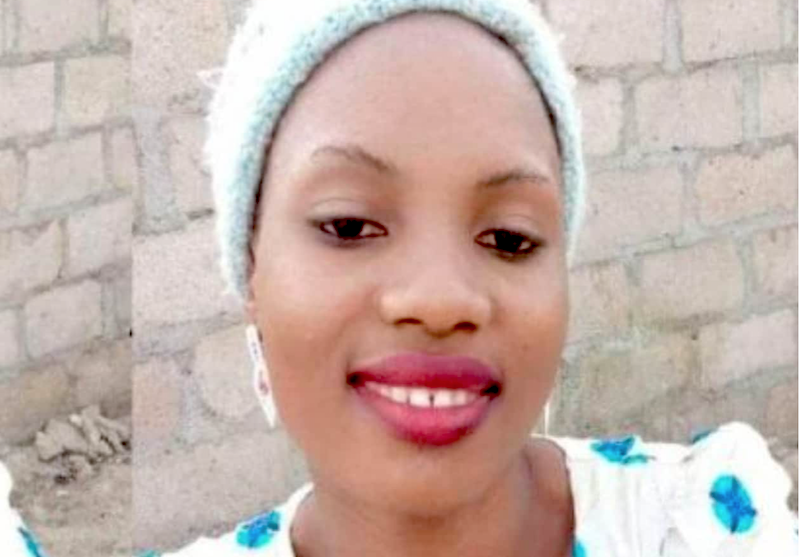EXCITING NEWS: TNG WhatsApp Channel is LIVE…
Subscribe for FREE to get LIVE NEWS UPDATE. Click here to subscribe!
By Cornelius Afebu Omonokhua
The Co-Chairmen of Nigeria Inter-Religious Council (NIREC), His Eminence, the President of the Christian Association of Nigeria (CAN), Rev. Dr. Samson Olasupo Adeniyi Ayokunle and His Eminence, the Sultan of Sokoto, President-General of the Nigerian Supreme Council for Islamic Affairs (NSCIA), Alhaji Muhammad Sa’ad Abubakar, CFR, mni, has said over and over again, that we cannot stop talking. They believe that things would go worse if there is no genuine and frank dialogue between Christians and Muslims in Nigeria. No matter the challenges, dialogue has no other alternative. This is the same answer I give to those who are asking if NIREC is working or making impart in promoting peaceful co-existence. We monitor and evaluate the media publications and happily enough, NIREC members have responded with one voice in the form of dialogue of theological exchange on doctrinal issues.
If dialogue of theological exchange guides the actions of believers, Nigeria will not be perceived as a religious war zone. Sincere dialogue with true exposition of the sacred texts can free religion from being used as an instrument of violence. One of the principles of inter-religious dialogue is to accept what unites us and bear in love with the faith of other religions that may contradicts our own. For instance, it is heresy or blasphemy for a Christian to say that Jesus is not the son of God. The Christian is not talking about biological progeny. It is not taken literally. That the Muslim do not accept this does not call for inter-religious conflict. There are many other areas of agreement between Christianity and Islam. Nostra Aetate identifies the following reasons why the Church must engage in dialogue of experts:
In Hinduism people explore the divine mystery and express it in myth and philosophy; they seek release from the trials of life by asceticism, meditation and recourse to God in confidence and love.
Buddhism proposes a way of life in which people can attain a state of perfect liberation and reach supreme illumination, either through their own efforts or with divine help.
Muslims worship the one, merciful and almighty God; they endeavour to submit themselves to God’s decrees, venerate Jesus as a prophet, revere the Blessed Virgin and await judgement and the rewards of heaven.
Jews are linked by spiritual bonds to the Church which springs from what God brings about in the patriarchs, Moses and the prophets; Israel is the olive tree on which Gentile branches have been grafted; Jews remain very dear to God because God does not take back his gifts and promises to them.
Respect is the hallmark and strong principle of dialogue. Every religion believes in showing respect to elders and legitimate authority. Lack of respect and desecration of Sacred persons and doctrines (beliefs) is abomination in Africa Primal Religions; blasphemy in Judaism, heresy in Christianity, blasphemy in Islam and Sacrilege in many other religions. It is blasphemy and a sacrilege to destroy sacred temples and houses of worship especially Mosque and Church buildings. This is a direct attack on God who dwells in sacred buildings. Most religions recommend that an offender should be reported to the legitimate authority to prescribe the corresponding punishment. Non recommends extra-judicial killing or jungle justice. The judgement of a sinner is the sole responsibility of God Almighty. Lack of proper teaching can lead miscreants to take laws into their hands. Sometimes, the actions of uniformed adherents can give a very bad impression and image of religion. It is believed that it is those whose actions contradicts the teachings of their religions that really insult their true Prophets. Jesus says: “By their fruits you will know them” (Matthew 27:20).
Some fake and false preachers present a distorted concept of God. History has recorded three categories of prophets: professional, false and true prophets. No wonder, Nigeria Vanguard newspaper reported on Tuesday, 26 June 2012 that “issuance of licenses to preachers will be considered, as that will help guide what the preachers tell their listeners”. This was rejected by those who think that government should not legislate on religion in the nation. Dialogue of theological exchange is also called dialogue of experts. Every field of life necessarily calls for proper training and formation. Religion should not be different. It is necessary for the religious preachers to be well formed in their own religions and the religion of others to prevent religious indoctrination and brainwashing. Adherents need authentic knowledge of their religions and not the whims and caprices of “self-ordained” Pastors and Mallams.
Some Christian and Muslim scholars have rejected extra-judicial killings. To de-radicalize those who have grown with wrong understanding and interpretation of the Holy Bible and the Holy Qur’an is the obligation of the Christian and Islamic Scholars who participate in dialogue of theological exchange. Unfortunately, some of these academic conferences do not reach the grass roots. Another challenge could be the uphill task of convincing somebody whose mind is already formed and made up on some theological and scriptural issues. A brain-washed person could even go out to attack the true leaders and true teachers of his or her religion. Since the tragic incident of Sokoto, this saga has played out in the media. According to the Second Vatican Council (Nostra aetate), Dialogue of theological exchange creates a space for specialists to deepen their understanding of their respective religious heritages, and to appreciate each other’s spiritual values.
According to Saint Pope John Paul II, dialogue of theological exchange is “the treasure of human wisdom and religion” (Fides et Ratio, 31) and “the spiritual riches with which God has endowed the peoples of the world” (Redemptoris Missio, 55). Dialogue is not however reduced to intellectual discourse. The document, “Dialogue and Proclamation” clearly sets out the various forms of dialogue which are interconnected. To make other forms of dialogue effective, those involved even at the grassroots needs some form of scriptural and spiritual formation to be aware of God and the value of the human person. Consequently, any teaching that calls for jungle destruction of life and property cannot come from God. No good parent enjoys the killing of children in the name of the father or mother of the family.
Other forms of dialogue require a thorough grasp of one’s faith hence experts or scholars who are engaged in dialogue of theological exchange need human qualities like humility, respect for others, a knowledge of the cultural and theological background of “the other”, knowledge of anthropology and the language to communicate without offending the listeners. Dialogue of theological exchange is not reduced to conferences. It includes media publications, books and articles in journals. It is also fruitful in formal and informal encounters like sharing a meal as personal friends irrespective of religious, ethnic and political differences. Above all, theological encounters become wonderful if the partners in dialogue can do without prejudices and mutual suspicions. Here, truth and mutual trust must be allowed to prevail. We need a wider horizon outside our individual religions to know that the other person who does not practise our religion is also a member of the household of God, the creator of all that exist.
Rev. Fr. Cornelius Afebu Omonokhua is the Executive Secretary of the Nigeria Inter-Religious Council (NIREC) and the Secretary General of the West Africa Inter-Religious Council.








